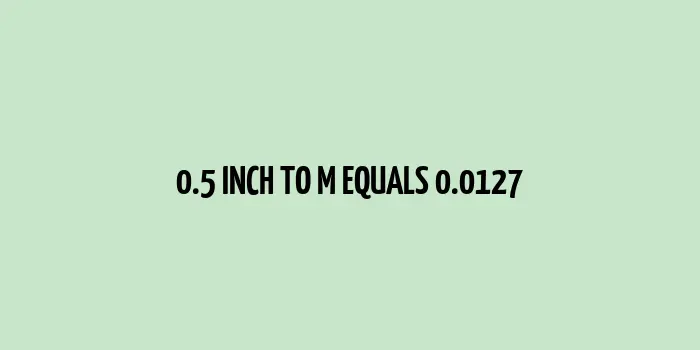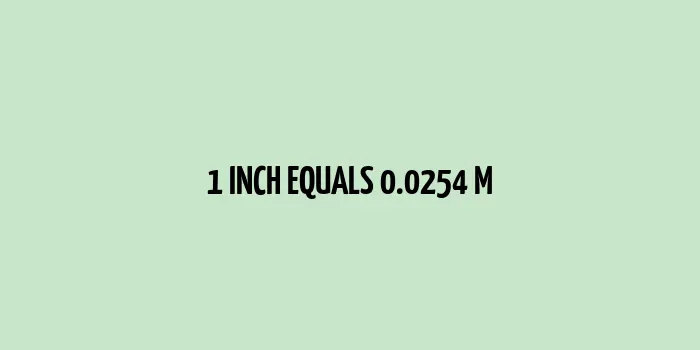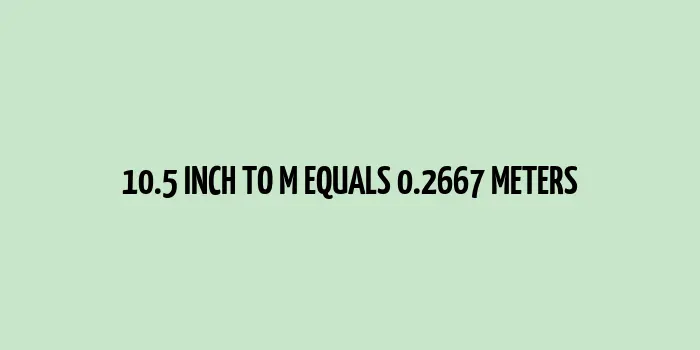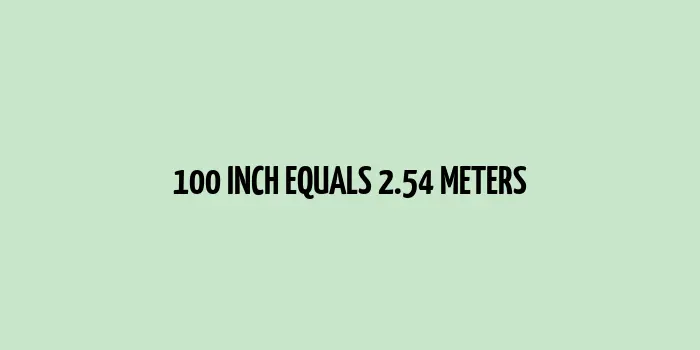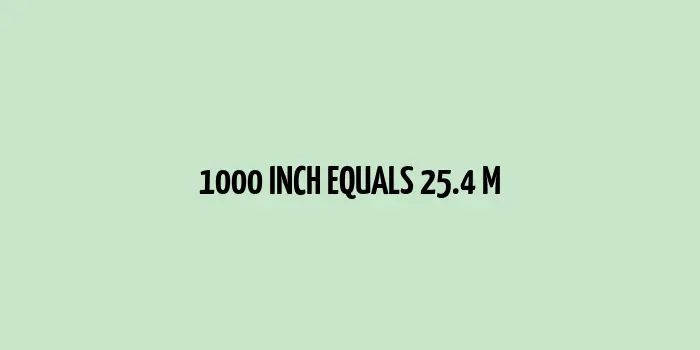84 inch to m (Inches to Meters)
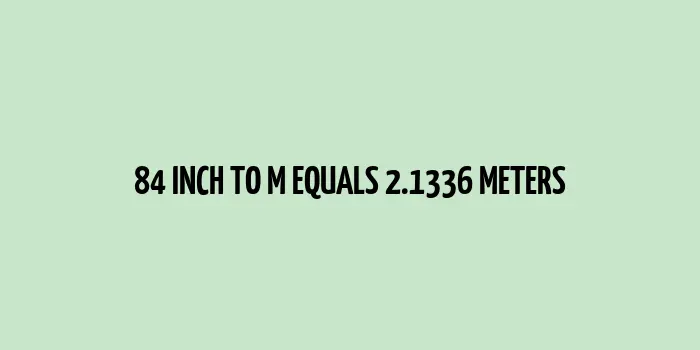
Let us understand the process of converting 84 inch to m
84 inch to m (Inches to Meters)
84 inches is equal to 2.1336 meters.
When measuring lengths and distances, we often need to convert from one unit to another. If you’ve ever wondered what 84 inches is in meters, the straightforward answer is 2.1336 meters. Understanding these conversions is essential for various applications, from construction to tailoring, and even when setting up home entertainment systems like TVs.
Understanding Unit Conversions
Inches and meters are both units of length. The inch is a unit of length used primarily in the United States, while the meter is the base unit of length in the International System of Units (SI). To convert inches to meters, you need to know that 1 inch is equal to 0.0254 meters. This fundamental conversion factor helps in converting any measurement from inches to meters.
Steps to Convert 84 Inches to Meters
To convert 84 inches to meters, multiply the length value by the conversion factor (0.0254):
[ 84 \text{ inches} \times 0.0254 \text{ meters/inch} = 2.1336 \text{ meters} ]
The Importance of Accurate Conversions
Accurate unit conversions are essential. Imagine a construction project where each measurement needs to be precise. A minor error in conversion might lead to significant issues, affecting the integrity and safety of the structure. Similarly, precision is vital in scientific research, where measurements often need to be converted and recalculated accurately.
Practical Examples of Converting 84 Inches to Meters
-
Home Improvement: Consider a scenario where you need to know if a TV that’s 84 inches wide will fit on a wall with a width measured in meters. By converting 84 inches to meters, you find out the TV’s width is 2.1336 meters, helping you determine if it fits perfectly.
-
Professional Applications: If a piece of fabric needs to be cut exactly 84 inches long for a sewing project, knowing that 84 inches is the same as 2.1336 meters is crucial for ensuring you cut the correct length, especially when working with patterns or designs that require precise measurements.
Common Mistakes in Unit Conversions
-
Rounding Errors: People often round off numbers too early in the calculation, leading to incorrect results. In our conversion, rounding off 84 inches to 2.1 meters instead of 2.1336 meters can make a significant difference in practical applications.
-
Wrong Conversion Factors: Using incorrect conversion factors can also lead to substantial errors. Always verify the conversion factor before use. For inches to meters, remember that 1 inch equals 0.0254 meters.
Interesting Facts and Statistics
-
Accuracy Matters: According to a study by the National Institute of Standards and Technology, small errors in unit conversions can cost millions in industries that require high precision.
-
Adoption Rate: Globally, the metric system is the standard, with over 95% of the world’s population using meters for daily measurements, making conversions like 84 inches to meters a necessary skill.
External Resources
For a comprehensive conversion calculator, visit ConvertUnits, which provides reliable and easy-to-use unit conversions.
FAQs
How do you convert inches to meters?
To convert inches to meters, multiply the number of inches by 0.0254.
What is 84 inches in meters?
84 inches is equal to 2.1336 meters.
Why is it important to use accurate conversion factors?
Using accurate conversion factors ensures the precision required for tasks in construction, tailoring, and other professional fields where even small errors can cause significant issues.
Is 84 inches a common measurement?
Yes, 84 inches is a common measurement, particularly in the context of large TVs or in specific industrial settings.
Can I use 2.1 meters instead of 2.1336 meters for 84 inches?
While rounding to 2.1 meters may be acceptable for rough estimates, for precise applications, always use 2.1336 meters to ensure accuracy.
By thoroughly understanding and appropriately applying these conversions, you can ensure accuracy and precision in your projects, whether for personal use or professional applications.
